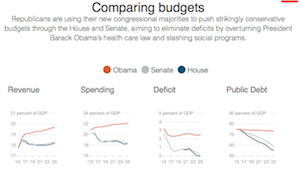IF YOU GOThe Sequatchie County Commission will meet for a work session at 6 p.m. CDT March 25 at the courthouse to discuss options and ideas for possibly higher employee health insurance costs.
Sequatchie County, Tenn., officials are studying a wheel tax and spending cuts to cover federal Affordable Care Act requirements for possible increases in county employee health insurance costs of as much as $600,000 a year.
County Executive Keith Cartwright said officials still are learning about the federal act's effect on the county's $32.2 million budget, but he said commissioners might have to take a number of measures to counter increasing costs.
"We're not the only county that's going to have these problems," Cartwright said Wednesday. "It is confusing, but we're following the CTAS [University of Tennessee County Technical Assistance Service] guidelines, and they're helping guide us through this thing."
New or higher taxes aren't popular, but Cartwright said he hopes to find common ground that satisfies needs and taxpayers. In 2012, voters twice shot down referendums to raise the county sales tax rate, records show.
Over the years, the county government hasn't pitched in much on employee insurance, he said.
Of about 120 employees, only 18 are on the county insurance plan. That doesn't count school system employees, who have their own insurance, Cartwright said. Some workers could be covered under their spouses' plans, he said.
The $600,000 figure is the "worst-case scenario" of having to insure all county employees, he said. Under the new law, the county must cover nearly all the cost.
"What we have done in the past is pay 50 percent of the cost [for] the employee only and none on spouses or children," he said.
Under the Affordable Care Act, employees cannot be required to pay more that 9.5 percent of their salaries for health insurance.
Commission Chairman Tommy Johnson said he hopes to present six to eight options, including cuts, to commissioners at a work session planned for March 25.
The only existing tax officials can increase is the property tax, he said. The $600,000 worst-case scenario would require a 25 cent property tax increase, but a $45 wheel tax would raise about the same amount, Johnson estimated.
"We're in the fact-finding step right now," he said. "We've got to understand exactly where we're at."
To establish a wheel tax, commissioners must pass a resolution for it on two consecutive readings with at least two-thirds approval, Johnson said.
But voters could force a wheel tax to a referendum by gathering signatures on a petition, he said. Commissioners can't pass a wheel tax and assume it's guaranteed revenue.
"It's not an easy time. Everybody's faced with a lower income; we've already had an increase in taxes on our paychecks," he said. "The vast majority of our constituents ... overwhelmingly are not interested" in increased or new taxes.

